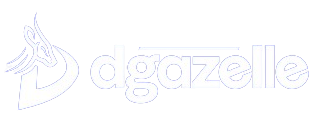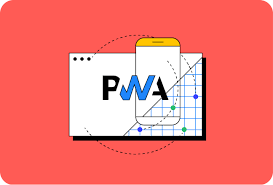With cell phones now ubiquitous in nearly every aspect of our lives, technology has revolutionized how we shop. Consumer demand for better and more engaging user experiences, fast load times, quick access to knowledge, and network independence is increasing rapidly and continuously. There is only one way to curb all these demands permanently: Progressive Web Apps for eCommerce.
Progressive Web Apps are getting so much hype in recent years. Many experts even helm it as a game-changing solution for eCommerce enterprises. Being a relatively new technology, PWA is getting immediate traction from many big brands. In fact, big brands are producing incremental results after building PWA for business. But small and medium businesses are still lagging in starting this technology.
What are Progressive Web Apps?
Progressive Web Apps, or PWAs for short, are web apps designed to function well on desktop and mobile platforms. PWA for e-commerce enables users to access information from any place or device, which makes your website more user-friendly.
The greatest aspects of native mobile apps are combined with the ease of use and accessibility of the web in e-commerce PWAs.
They are perfect for companies that wish to offer their clients a quick, dependable, and interesting online experience because they are essentially responsive websites that have been optimized for performance and user experience.
Features of PWA
Some of the key features that make Progressive Web App eCommerce so appealing for businesses include:
Add to home screen: A website or app’s user interface (UI) can be added to a customer’s device’s home screen, just as with a native app. This makes it simple for them to locate and utilize your site even if they don’t have access to the internet.
Offline mode: Offline support for PWA eCommerce is identical to offline capability in native apps. This means that your consumers will still be able to access your site even if they lose their internet connection.
Content Personalization: Cache memory to save the content of a webpage & use it even without internet connectivity. This reduces the page loading time to a marginal value.
Instant loading: An eCommerce PWA is a web application optimized to load quickly and without fail across a broad range of network connections. This means that your consumers will never have to wait for your site to load, no matter where they are.
Push notifications: Push notifications can keep your consumers up to date on new items, sales, and other vital information.
Interactive web interface: The PWA elevates the user experience of the website with its interactive user interface and intuitive layout. It gives an impression of native mobile apps to your visitors.
Benefits of PWA in e-commerce
Getting a good performance level is essential for any e-commerce business to succeed. If your site is difficult to find or takes too long to load, they will probably visit a competitor. Progressive Web App e-commerce can help here.
E-commerce websites using Progressive Web Apps are fast, dependable, and visually appealing, which makes them the perfect choice for businesses trying to improve their CX, UX, and SEO rankings.
There are several advantages to using a PWA in eCommerce for enterprises, including:
- Functions on all platforms: In other words, PWA is compatible with browsers, regardless of operating system—Windows or Android, for example.
- Adapts for device configuration: Progressive web applications change based on the device being used by the user. Therefore, it functions equally well regardless of the smartphone or computer’s hardware configurations or display screen size.
- Fluid and smooth: PWA can provide a faultless user experience with no major processing problems due to its modest and compact size.
- Lowers bounce rate: Progressive web apps have an enticing charm that keeps users on the page longer, even if they have no intention of making a purchase.
- Increases customer outreach: All a user needs is a URL to gain access to these mobile solutions, which are accessible to everybody. Websites that are easily accessible have higher penetration rates.
- Boosts customer retention: This tactic is not only effective in decreasing bounce rates but also in retaining previous consumers who may have left your site.
How PWA features improve your eCommerce business?
Every online store, new or existing, should consider adopting PWA eCommerce to stand out from competitors. With mobile traffic now at 60% and conversion rates at just 16%, there’s immense potential for growth. Progressive Web Apps (PWA) offer a fast solution, with Google reporting a 20% revenue boost and mobile conversion rates doubling for eCommerce businesses that switch to PWAs. Optimize now for the best mobile shopping experience!
Push notification
Push notifications on eCommerce PWAs offer direct engagement, reaching users on their mobile devices for a highly interactive experience. Unlike emails, push notifications capture attention immediately. With 96% of users browsing anonymously, lacking contact information, push notifications fill the gap, allowing businesses to engage customers without needing emails or accounts. This makes them a powerful tool for boosting user interaction and driving conversions efficiently.
Better user adoption via home screen installation
Progressive Web Apps (PWAs) offer a seamless user experience, combining website functionality with native app convenience. They can be installed directly on a user’s home screen for easy access. According to BigCommerce, Flipkart’s PWA sees a 60% re-install rate, showcasing the power of PWAs in user adoption. With 60% of users allowing push notifications, PWAs offer a higher engagement rate than email, enhancing both user experience and marketing opportunities.
Superb instantaneous performance
Users increasingly expect faster speeds, especially with mobile-first usage on the rise. A survey shows 53% of visitors abandon sites after 3 seconds of load time, with conversion rates dropping by 21.8% per second. PWAs deliver superior performance, loading in under a second, offering an “instant” feel through client-side caching. Google reports that faster sites see 70% longer sessions and 35% fewer bounces. PWAs also reduce server space, data usage, and storage needs, enhancing both speed and efficiency.
Improved SEO with eCommerce PWAs
eCommerce PWAs are web-based, meaning all content is indexed by search engines, unlike native apps. This enhances SEO, allowing users to access cutting-edge digital goods across devices. Fast loading times, reduced bounce rates, and engaging user experiences naturally boost SEO rankings. When well-designed, Google prioritizes PWAs over regular websites. However, optimizing the technology behind PWAs is crucial, as their reliance on JavaScript requires proper indexing. With server-side rendering, developers can ensure seamless SEO performance, making PWAs a powerful tool for improving search rankings while offering a superior user experience.
higher conversion rates when using a PWA for eCommerce
Higher conversion rates are the result of improved user experience. If an online store can remove friction and hassles, customers will be able to effortlessly accomplish their goals.
In the end, it all comes down to giving your clients a better experience. The potential that eCommerce PWAs present are quite exciting.
Instead of worrying about how things will change in 2023 and beyond, now is the ideal moment to take advantage of these opportunities. PWAs have the great potential to improve experiences across the board for eCommerce users.
PWAs are perfectly built for eCommerce
To be considered a PWA, a site must fulfill the following three baseline criteria:
- PWAs must be served over HTTPS to guarantee a secure and safe environment, as well as the transmission of data.
- a PWA must have a Web App Manifest, a JSON file that contains all the metadata the device needs to know about the page to install it on the home screen. The JSON file contains information like colors, icons, fonts, and landing page URLs.
- The Service Worker is an essential component of a PWA. These are technically known as “javascript proxies.” They unlock features such as offline mode, fast loading times, and the ability to deliver Push Notifications.
Conclusion
Mobile users have increased exponentially in the last few years. This trend is not slowing down soon, in fact. It is continuously growing. Many big brands are already making the most out of PWA. It is time for smaller businesses to reap the benefits of PWA for business advancement. Progressive Web Apps offer the most advanced web practices for business.
GET IN TOUCH
Boost Your Sales with Lightning-Fast PWA, Book a free session now to learn how to upgrade Your eCommerce platform Today!








